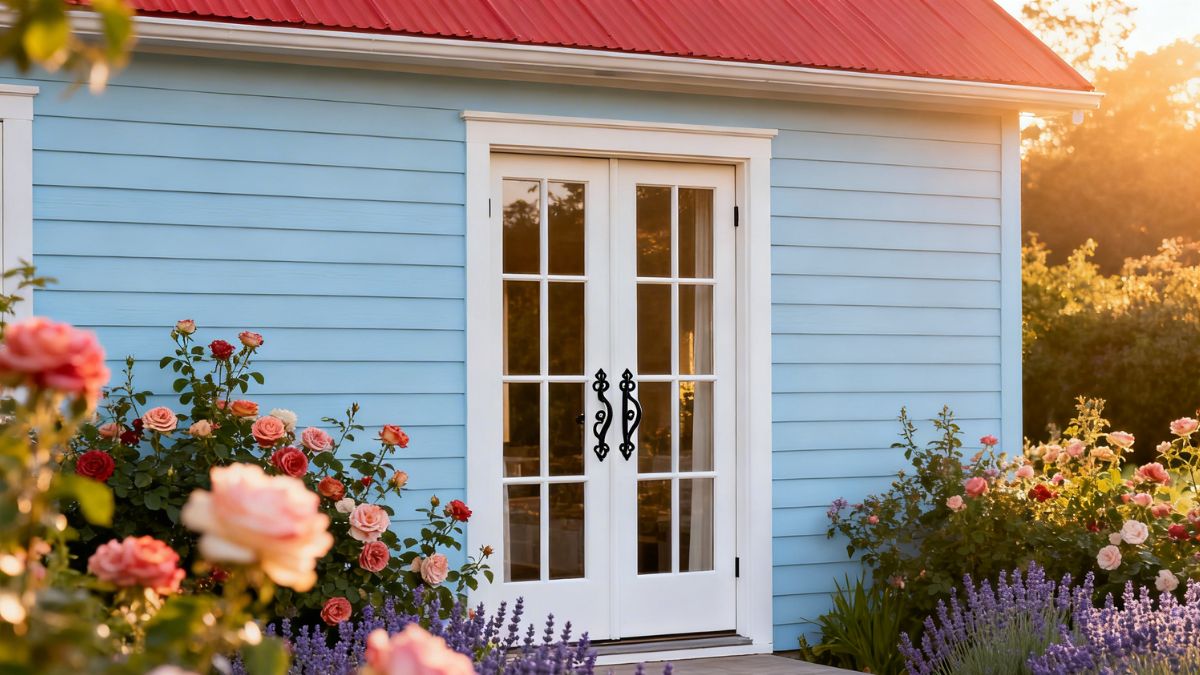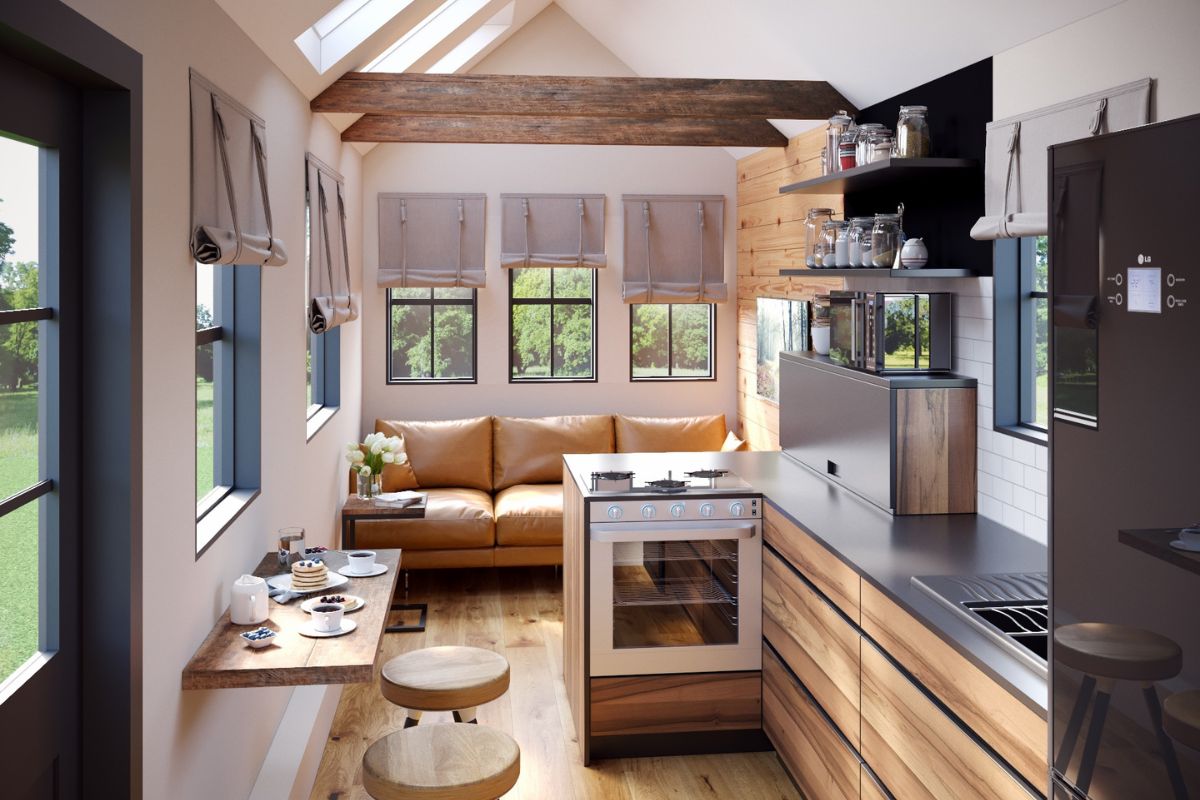9 Important Things Every Homeowner Should Know
.jpg)
Image Source: Canva
Becoming a homeowner, offers an exhilarating and fulfilling journey. As you familiarize yourself with your new environment and get ready to settle into your new residence, several considerations must be considered. Transitioning from a rental to owning your home likely means adjustments in handling maintenance, managing expenses, and ensuring safety.
Conversely, if you're a first-time homeowner, you might need to be aware of the myriad responsibilities accompanying home ownership. The learning curve can be steep, and the volume of tasks might seem daunting.
However, there's no need for concern. In this guide, we'll explore the nine essential aspects every homeowner needs to understand, enhancing your knowledge and confidence in managing your home effectively.
1. Understand Your Home Maintenance Schedule
Home maintenance is a critical part of homeownership. It involves regular upkeep and occasional repairs to ensure your home remains safe, comfortable, and efficient. However, if you're unfamiliar with your new home's maintenance schedule, it can be challenging to keep up with all the necessary tasks.
Understanding that every home has different maintenance needs depending on its age, location, and construction is crucial. For an old home, you may require demolition and rebuilding to address structural issues, while a newly constructed house may need regular cleaning and changing of air filters.
Those living in homes in Sherrills Ford can consider a local demolition services in Charlotte NC, to help them create more space and manage maintenance tasks effectively. Some homes may also have unique features that require specialized maintenance, such as a swimming pool or a fireplace.
To ensure you stay on top of your home's maintenance needs, consider creating a schedule that outlines all the necessary tasks and their frequency. Some tasks require annual attention, while others need quarterly or monthly checks. Sticking to a regular maintenance schedule can prevent costly repairs in the future and keep your home in excellent condition.
2. A Home Energy Audit Can Save Energy and Money
On average, a US household incurs more than $2,000 in energy expenses annually. This financial strain is especially pronounced for low-income residents of tiny homes.
To reduce your energy expenses, consider scheduling a home energy audit to identify inefficiencies in your energy consumption, such as air leaks or outdated appliances. With an audit, you'll receive recommendations that include replacing wasteful systems, adding insulation, or adjusting thermostats for optimal performance.
A home energy audit may require an initial investment, but the long-term savings outweigh the costs. An auditor will inspect your home and help you find ways to reduce your energy costs. For example, they will identify the best energy-saving light bulbs, assist in programming your thermostat to reduce usage while you're away from home, and provide tips on sealing air leaks.
Homeowners investing in energy-efficient upgrades can benefit from available rebates and incentives, reducing costs for energy audits and improvements, making them a wise investment for future savings. Choosing the right materials to prevent energy leaks is crucial. Insulated Concrete Forms (ICFs) are a popular choice for their great insulation, durability, and resilience against natural disasters.
3. Safety First - Protect Your Home and Family
Nothing matters more than keeping your home and family safe. While it's impossible to predict every potential hazard, there are steps you can take to protect your loved ones and property. First, ensure all smoke detectors and carbon monoxide alarms are in working condition, and replace batteries regularly.
Having a fire escape plan in place and conducting regular drills with your family is also essential. Ensure your home has proper security measures, such as deadbolts on doors and motion-sensor lights outside. If you have a swimming pool, ensure it has safety features such as a fence and locks to prevent accidents.
Another crucial aspect of home safety is having adequate insurance coverage. Homeowners insurance can protect your property in case of damage from natural disasters or accidents. It's important to regularly review your coverage and adjust it as needed to ensure you are adequately protected.
4. Familiarize Yourself with Local Regulations and Permits
When you decide to undertake home improvement projects, you must be aware of any local regulations and permits required. These may include building codes, zoning laws, or environmental regulations. Ignoring these guidelines can result in costly fines and delays in your projects.
Before renovating or renovating your home, research and obtain any necessary permits. Building permits ensure the work is done correctly and safely, protecting you and your property. Additionally, some projects may require approval from homeowner associations or neighborhood committees before proceeding.
However, not all construction requires permits. Simple interior cosmetic changes, such as painting or replacing flooring, typically do not require a permit. It's essential to check with your local government or consult a professional before starting any work to avoid potential legal issues.
5. Homeowners Require Insurance for Their Homes
Homeowners insurance is required in some cases. Here’s an example, your lender might ask you to have insurance for protecting your investment if you have a mortgage. Homeowners insurance typically covers damages caused by natural disasters, theft, and liability if someone is injured on your property.
While homeowners insurance is essential for protecting your property, it's crucial to understand what it covers and what it doesn't. Typical policies do not cover flood damage or earthquakes, so if you live in an area prone to these disasters, consider adding additional coverage. It's also important to regularly review and update your insurance policy to ensure adequate property coverage.

6. Shut Off the Water Before Vacationing
Every insurer adjuster has a story about how a homeowner left for vacation only to return home to find a flooded house. As a result, they had to part with thousands of dollars to repair the damage. The moral of these stories is simple - always shut off your home's main water valve when going on vacation or even a long weekend.
Water leaks can occur at any time and, if left unchecked, can cause significant damage to your property. Shutting off the water valve prevents costly repairs and gives you peace of mind while you're away. Having someone check on your home while you're gone is also a good idea to ensure everything is in order.
7. A Deep Clean Can Improve Your Home's Air Quality
There comes a point in a home where every nook and cranny is filled with dust, dirt, and other contaminants. A deep clean can help improve your home's air quality by removing these pollutants and allergens from your living space. It also helps maintain the cleanliness of various components in your home, such as carpets, upholstery, and appliances. Here are some tips for deep cleaning your home:
- Dust and vacuum regularly: This is particularly important if you have pets or allergies.
- Use natural cleaners: Avoid harsh chemicals and use natural alternatives like vinegar and baking soda. These are better for your health and the environment.
- Don't forget hidden areas: Clean behind appliances, under furniture, and in your air vents to remove dust and debris.
- Hire professionals: For a more thorough deep clean, hire professional cleaners with the necessary equipment and expertise.
8. Understand Your Home's Plumbing System
Imagine stepping into your home only to find a puddle of water in your living room or a clogged toilet that refuses to flush. These scenarios underscore the importance of understanding your home's plumbing system and knowing how to handle basic plumbing issues.
Start by locating your home's main water shut-off valve, usually in the basement or near the water heater. This valve allows you to turn off the water supply when needed, such as during a leak or burst pipe. Knowing how to unclog drains and toilets using a plunger or drain snake is also important. Keeping these tools on hand can save you from expensive emergency plumber calls.
An essential yet overlooked component is the vent system in your plumbing. The vents are the pipes that run vertically through your home and allow air to escape from the plumbing system. They prevent negative pressure from building up, which can cause slow drains or gurgling noises in your pipes. It's important to keep these vents free of debris and ensure they function correctly.
9. Find Your Property Lines and Understand Easements
Knowing your property boundaries is crucial for homeowners. It ensures you're within your rights when making modifications or enhancements. Before adding fences, sheds, or trees, finding your property lines is essential to prevent disputes or legal issues. The most accurate way to determine these lines is by checking your house's plat in your closing documents or hiring a professional surveyor. Knowing your property's limits can save you headaches and expenses.
An easement allows others to use part of your land for specific reasons, like utilities or public access. It is important to know about any easements before starting construction or landscaping projects. Ignoring these can lead to legal issues and possibly having to remove any structures or plants that infringe on the easement area. Always review your property's deed or contact a local land records office to check for easements that could impact your property.
Owning a home comes with many responsibilities, but it also offers a sense of pride and accomplishment. With these nine essential things every homeowner should know, you can confidently navigate the world of homeownership and ensure your home remains a safe, comfortable, and efficient place for you and your loved ones.







.jpg)

